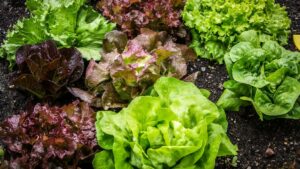For Calvin Stover, director of seed purchasing & quality assurance for Tanimura & Antle, consumer demand in the produce space is met by one fundamental thing: quality seed.
Based in Salinas, Calif., the company provides sustainably grown, premium quality produce to customers around the world, specifically lettuce, cauliflower, broccoli and celery.
Stover currently handles a majority of Tanimura & Antle’s seed purchasing for a variety of crops such as lettuce, onions and brassicas. Along with seed purchasing responsibilities, he oversees varietal R&D work in multiple growing regions for the company. Stover spoke yesterday at the American Seed Trade Association’s Vegetable and Flower Seed Conference in Monterey, Calif.
Stover provided the following insights for seed companies on how consumers who purchase Tanimura & Antle’s packaged vegetables are the beneficiaries of quality checks that start with the production of the seed the company purchases to make its products.
What does the consumer want? There’s no straight answer.
“Fifteen years ago everyone had a flip phone. If you asked anyone if they wanted an iPhone, no one knew the answer to that. They didn’t know what was possible. For consumers to know what they want, they have to know what is possible, and that takes a partnership of retail, growers/shippers and seed companies. On the other hand, consumers can say they want something, but if no one is breeding for it, it doesn’t matter. It needs to be a collaborative effort from the ground up.”
Seed companies are crucial partners in bringing quality produce to the consumer.
“We’ve seen that with our artisan lines, like our artisan lettuce pack. Is it truly innovative? It is in the fact it’s focused on taste, consistent quality and appearance. Tangos aren’t new to the worlds, gems aren’t new to the world and oaks aren’t new to the world. It’s a unique way to package and present it to the consumer.”
You don’t have to breed the next big thing to be successful.
“Instead of buying a chopped-up spring mix, we provide the whole head. They take it home, cut it up, have an experience with it. They can put it back in the clamshell, save half of it if they need to. Another example is our artisan romaine pack. It’s the perfect size for the family to make individual-size Caesar salad. It was nothing groundbreaking. We didn’t work with seed companies to come up with the next new thing that no one had ever heard of. It was simply a unique way to put a product together. We bring unique things to the customer and keep it consistent, focusing on quality and taste.”
Taste is more important than ever.
“Our artisan lettuce has gone through changes in terms of the varieties we use — taste has become more important than ever to the consumer. If your product line is a bit too bitter, you get asked how it can be made sweeter. Ten years ago, if we asked how important taste is, it was high on the list, but quality was really desired. Now we have come to the threshold where quality is there consistently, and the consumer focuses on the taste.”
Three words to think about: germination, hybridity and vigor.
“With so many seed companies working on the same things, the make-or-break point for a lot of our variety choice decisions is seed quality. Germination, hybridity and vigor are crucial. Vigour in particular is very important for the seed industry because it’s not a consistent term. There’s no industry standard for vigor — everyone has a different idea of what it means and how to test for it. Is it a cold stress test, heat stress test, determined in a germ chamber or in the field?”
Is your vigor really that good?
“Every seed company says, ‘Our vigor is fantastic.’ What does that mean for us? How does your vigor correlate to the guy next door?”
Technology means more seed quality scrutiny.
“We screen every batch of seed we buy. It’s intensive, time consuming and costly. We know where we put our stronger seed and weaker seed.”
Who producers buy their seed from is becoming more important.
“’Who are you buying your seed from?’ is a question we get more and more. Retailers want to know that when they make a contract with us for a certain volume every week, that we will deliver. Consumers are increasingly wanting to know where seed comes from. ‘How do they produce it and where?’ This will become more important.”











